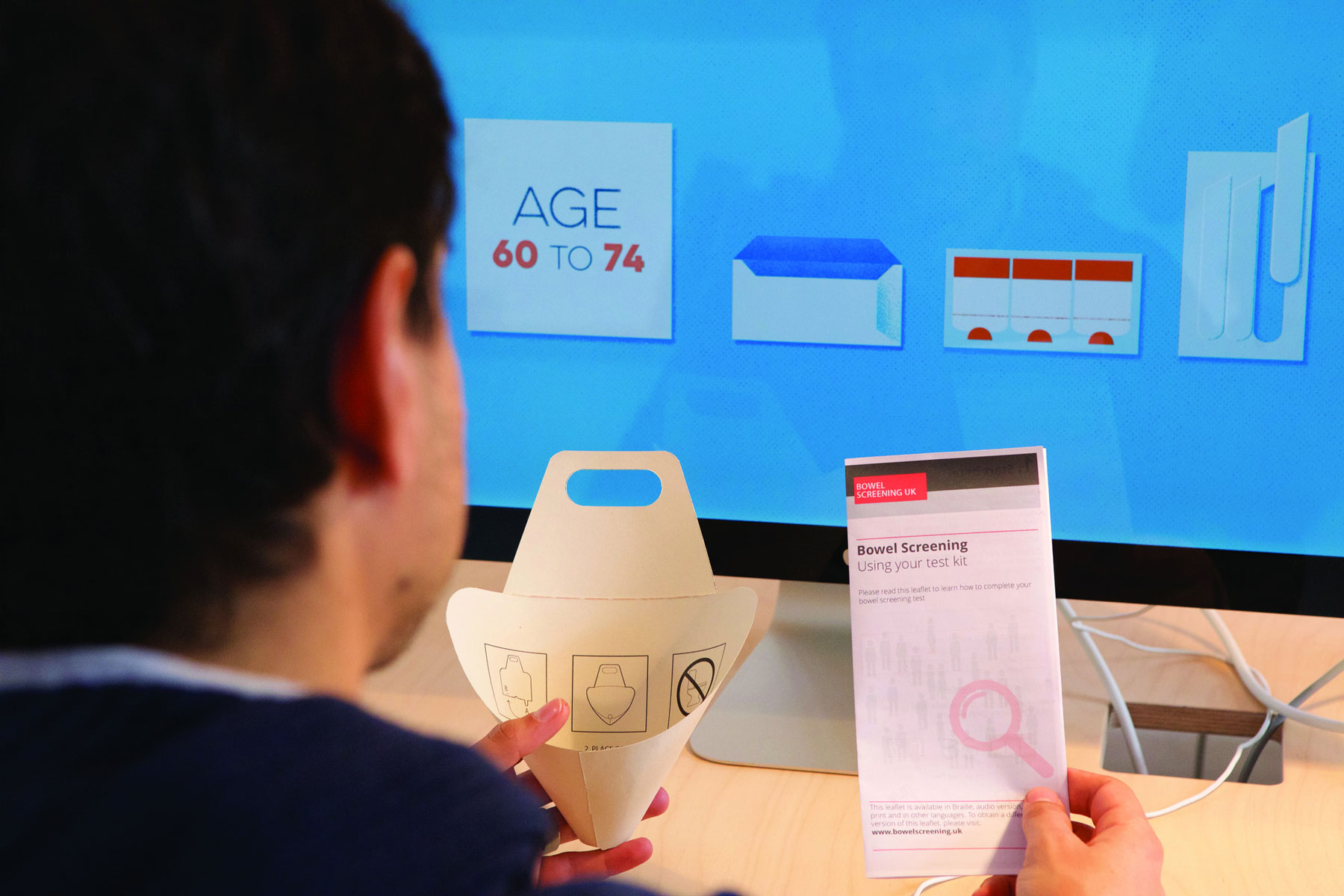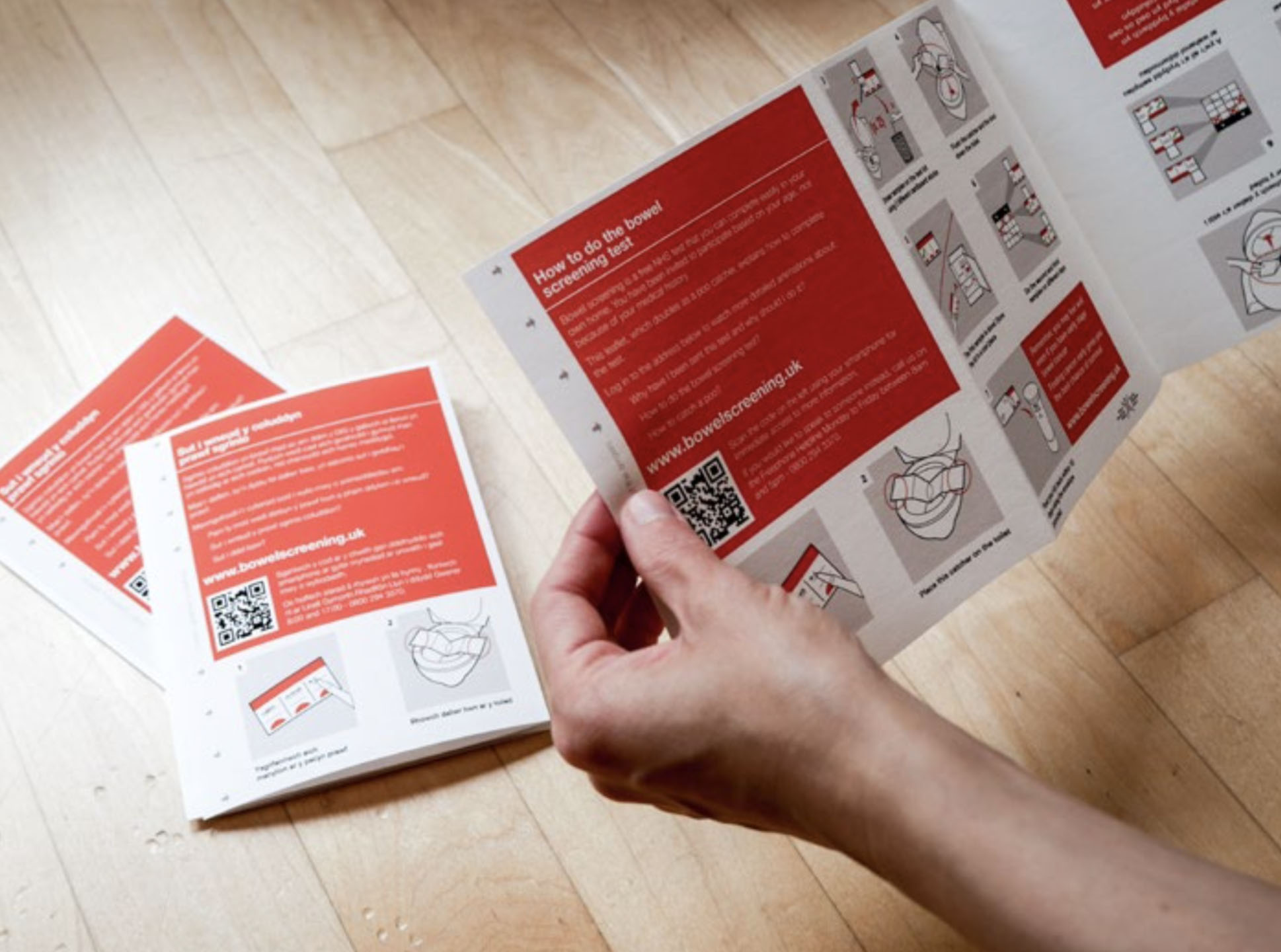
Bowel Health
Improving take-up in bowel cancer screening
Over 41,000 people are diagnosed with bowel cancer every year in the UK. With 16,000 people dying from it per year, it is the second most common cause of cancer deaths in the UK. When diagnosed early, bowel cancer is both treatable and curable, so it is no surprise that a National programme is important. In England, people between 60 and 75 are sent a pre-invitation letter and a testing kit to produce three stool samples and post them back to the lab within a limited time frame. If results flag anything up, then people are then invited for a colonoscopy study.
Despite the evidence of improved outcomes,just 58% of people invited by the NHS Bowel Cancer Screening Programme (BCSP) participate, notably take-up is lowest in the population segment with the highest risk. In this context, our aim was to design a population-wide initiative that could communicate and engage with men and women at an intimate level.
Professor Stephen Halloran, Director of the BCSP, provided early and invaluable insights into the true operational complexities of population screening. Using our human-centred design approach, we also gathered insights by talking to people at their homes. The detail and granularity we were able to collect through these conversations provided an in-depth picture into the issues. Take, for instance, the conversation we had with a couple in their early 70’s who had rejected the test. The conversation swerved towards how the husband went out of his way to avoid problems, even when his wife was encouraging him towards doing the test. In his words, “if I know I don’t have a problem (with cancer), why would I go and look for one?” This argument ultimately convinced his wife not to do the test as well!

A prototype faeces catcher
We first focused on the out-of-box experience. In other words, how could we convert this unexpected 60th birthday gift into something encouraging and even optimistic. There was also a strong element of practicality: how on earth do you even collect a stool sample?
In response, and after many iterations, we designed a new “poo catcher.” It is a simple and flushable paper device that adheres to the toilet bowl, allowing people to catch a sample before it touches the water, avoiding contamination of the sample. The poo catcher was designed to encourage people to seek more information and educate themselves through an accompany website with animations explaining the importance of participation, a step-by-step troubleshooting guide on how to complete the test and what to expect once you’ve sent the kit back to the lab. Although online animations won’t be appropriate to all audiences, they offer the ideal medium to present an awkward topic in a positive and frank manner and can help communicate key points for non-native English speakers.
We felt that it was critical to reframe the screening programme towards bowel health, rather than bowel cancer.
Would you want to receive a letter out of the blue with the word ‘cancer’ printed at the top? The kit we have designed will go through a large-scale randomised control trial to test where it increases participation and improving the bowel cancer screening experience. Our aspiration is to demonstrate that cost-effective, design-led interventions such as this can make a significant impact on population-level screening programmes.



